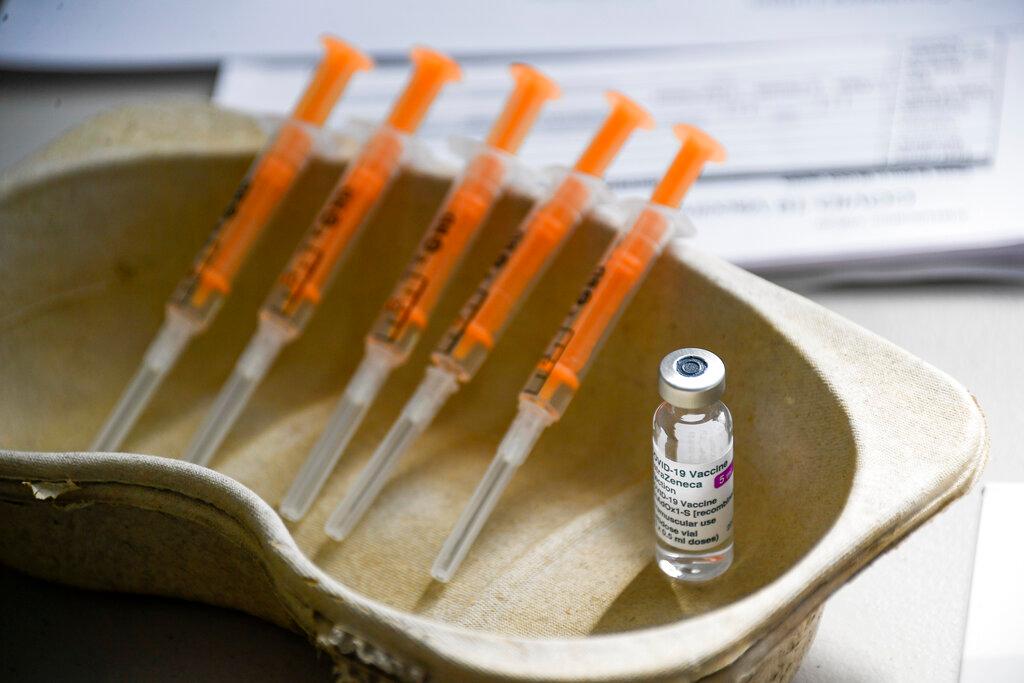Clot risk far lower from vaccines than virus, UK study shows
It says increased risks associated with the jabs are short-term only, while virus infection is associated with increased risk for the whole of the 28-day period examined.
Just In
The risk of rare blood clotting after receiving Covid-19 jabs is far lower than from the virus, a large-scale study by researchers from the University of Oxford found Friday.
Fears over rare cases of clotting conditions have prompted some countries to rule out or limit rollout of the Oxford-developed AstraZeneca jab, with the UK recommending that healthy people under 40 get alternative vaccines.
The study published in the BMJ medical journal examined data on almost 30 million people in England first vaccinated between December and April.
It found a very small increased risk of some clotting conditions that could lead to hospitalisation or death shortly after first doses of the AstraZeneca and Pfizer vaccines.
But it concluded that risks of most conditions were “substantially higher and more prolonged” after Covid-19 infection.
The issue came to the fore this week as a coroner on Thursday found that a 44-year-old BBC presenter, Lisa Shaw, died from a blood clot in her head as a rare complication from a first AstraZeneca dose.
The study’s lead scientist Julia Hippisley-Cox, professor of clinical epidemiology at the University of Oxford, told BBC Radio 4 that Shaw’s death was “very sad”, but “these are very rare cases and the vast majority of patients will be absolutely fine with these vaccines”.
Reports have focused on the AstraZeneca jab’s link to cerebral venous sinus thrombosis (CVST), or blood clots in the brain.
The study estimated that for 10 million people who received the AstraZeneca jab, there were seven additional cases, compared to 20 in people with Covid infection.
For blood clotting in a vein (venous thromboembolism), scientists estimated that there were 66 additional cases among 10 million who received the AstraZeneca jab, but 12,614 among those with the virus.
The study found that the AstraZeneca jab was associated with excess cases of thrombocytopenia, or low levels of blood clotting platelets, with 107 additional cases per 10 million people. But the figure for those infected with the virus was 934.
The Pfizer vaccine was linked to an estimated 143 excess cases of stroke per 10 million, while Covid was linked to 1,699 excess strokes.
Hippisley-Cox stressed that increased risks associated with the jabs were short-term only, while virus infection was associated with increased risk for the whole of the 28-day period examined.
For example, the Pfizer jab increased stroke risk for 15 to 21 days, she said.
Subscribe to our newsletter
To be updated with all the latest news and analyses daily.
